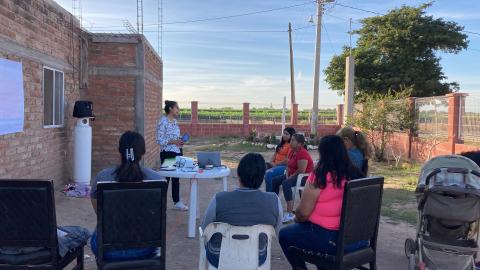Octubre 4, 2023
Six things to know about Florida’s labor and immigration law (and how you could respond)

Do you live or work in Florida? A law went into effect on July 1, 2023 that introduced new rules and penalties in Florida around employers hiring people who are undocumented or organizations offering them identification, transportation, and healthcare.
Here are six facts about the law going into effect and its potential impacts:
1. A number of Florida employers will now have to verify the immigration status of their employees with E-Verify. E-Verify is a national online system for verifying that an employee is eligible to work. It checks the employment documents that an employee provides against federal immigration records of those documents. The Florida law will require that all employers in the state with more than 25 employees, all public agencies, and all private contractors for public agencies to use the federal E-Verify system to check the immigration status of their workers and to stop employing any worker who they learn is undocumented. Some other employers may voluntarily choose to certify the immigration status of their workers with E-Verify.
2. The law imposes new challenges on possessing a valid ID in Florida if you are undocumented. No one in Florida can issue an ID to a person who is undocumented, and if another state has issued the ID, then it will not be valid in Florida. It will now be a criminal felony to use the identification document of another person to obtain a job.
3. Florida will continue its efforts to move people who are undocumented to other states. The government has allocated $120 million in additional funding to transport immigrants who lack lawful immigration status out of Florida and to other states.
4. It could be illegal to bring people who are undocumented into the state, but the law may change. Under the new law, transporting into Florida anyone who has entered the United States without legal documents and “inspection” by federal authorities is a criminal felony. However, immigrant advocacy groups are suing the state to challenge this rule as unconstitutional.[BB1] A federal judge in Florida will decide if the law can remain in effect.
5. Healthcare providers may have to ask for patients’ immigration statuses. Any hospital that uses Medicaid funds will need to ask for a patient’s immigration status and report it to state agencies that request it. It is important to note that, even under this law, hospitals cannot provide patients who are undocumented worse treatment because of their immigration status.
6. Persons with a visa can continue to work and live in Florida. That includes people on H-2, J-1, and TN visas. This law does not change the immigration laws related to living and working in other states without documents.
Here are things you could do today to prepare for the new law:
1. If you have legal documents to live or work in the United States, check that they are still valid and renew them if you can. If you have a visa, you can learn about your rights and get answers to your questions through Contratados.org. You can also learn about U.S. visas. Find the contact information for your nearest U.S. embassy or consulate.
2. If you are undocumented, seek legal help. If you are wondering about your labor rights, reach out to Centro de los Derechos del Migrante, Inc. (CDM) through its office in Mexico at 55 9661 6771 or in the United States at 667 217 5738.. We encourage you to continue learning about the protections you have in the United States under your visa program. We also invite you to follow us on Facebook. You can also check this list from the ACLU of Florida to find immigration assistance.
Visit our Contratados page on Facebook.
